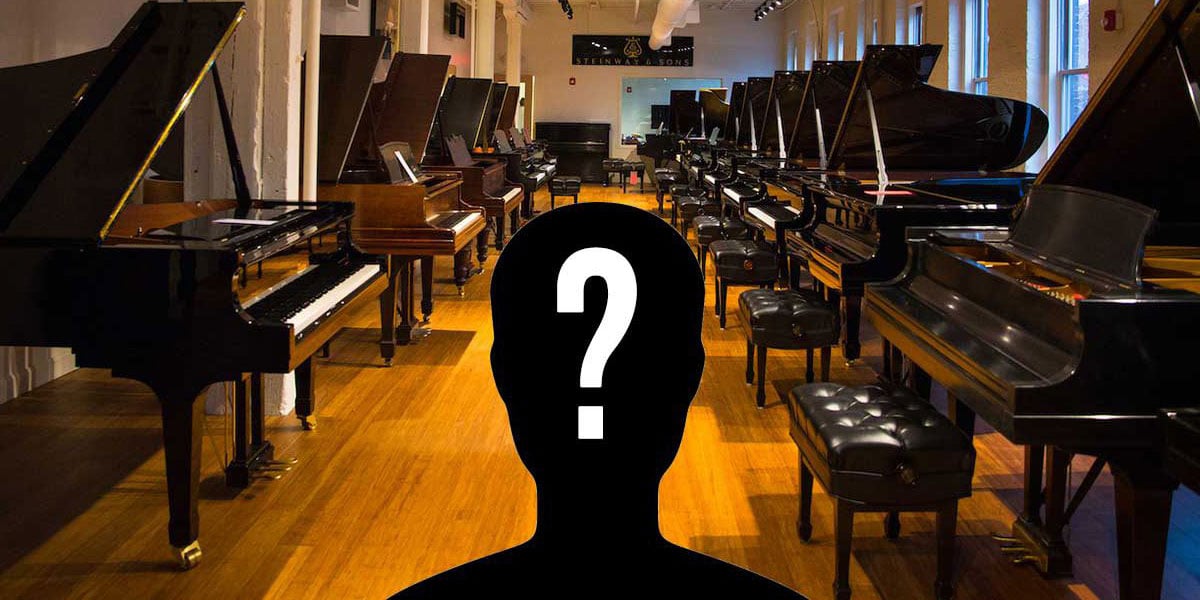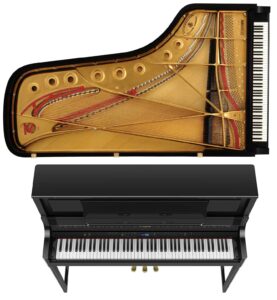How to Choose the Right Piano for Me
December 18, 2020 •Chuck Johnson
You may only do this once in your life, make every effort to think your decision through...
by Jessica Kendall Hauk

Factors to Consider When Choosing a Piano
At the point you decide you’re ready to buy a piano, you must remember the poet T.S. Eliot’s wise observation above all else: You are the music while the music lasts.
This is the premise for every piano purchase - the understanding that you and the music are one, and that the piano is the conduit for the energy created by this fusion of person and melody. The unique expression of your music - whether you’re a beginner with a finite repertoire or a professional musician with years of experience - hinges upon the marriage of person and instrument.
As the nation’s oldest Steinway dealer, M. Steinert & Sons urges you to carefully consider the following factors as you prepare for your piano purchase: 1) your musical aspirations, 2) the type of piano you wish to buy, 3) the piano’s location in your home, 4) your budget.
What are my musical aspirations?

Your piano should inspire you to play it before you even sit down. If you enjoy playing it, then you will, and practicing won’t feel like an obligatory chore. No matter your goal, make sure your instrument doesn't become the excuse to not practice, or to not play.
There are many piano choices - proceed wisely and consider what you'd ultimately like to achieve. Is it just to play a few simple popular songs, or to take on the challenge of history's piano masterworks?
The high-quality woods in a fine piano ensure the longevity of your instrument and the assurance that you will only ever need to buy one. It takes a year for skilled artisans to build a quality piano; it can take your lifetime to enjoy it fully.
Many have found that the low-tension scale design and warm sound of the Steinway is the most responsive piano to a musician’s touch; the keys are incredibly sensitive and allow you to express the most subtle nuances of tone and musical composition. It feels and sounds like an extension of yourself and will convey the full range of your emotions and talents if you want it to.
Not everyone will choose Steinway, but if it's within your reach - we always suggest to at least try it. See if you can tell the difference!
Acoustic or Digital?

Some musicians favor the acoustic experience, while others prefer digital piano technology. Steinways and Steinway-designed pianos are characterized by a warm, full sound and have long been deemed the best-in-class acoustic pianos by concert pianists.
The low-tension scale design of Steinway prevents shrillness in the upper registers of the treble and distinguishes it from other pianos. This feature is the hallmark of Steinway and the standard to which other brands aspire.
On the other hand, a Roland digital piano offers multiple technological enhancements including i-pad connectivity for educational software.
This may be a good option for techies and budding musicians and offers the added benefit of taking up less space than a grand or vertical piano. Furthermore, digital pianos don’t require tuning, which makes them maintenance-free.
Acoustic grand pianos have inspired most western piano music. The quality digital piano can feel similar to an acoustic piano and allows practice with headphones.
Your preference for acoustic or digital is highly personal; at M. Steinert & Sons we offer a wide range of options in both categories.
Where will I put my piano?
While there are many musical reasons to purchase a grand piano rather than an upright, most notably the upward trajectory of sound offered by a grand, there are aesthetic considerations as well.
Grand pianos are beautiful and inviting and should be placed in a room that showcases their craftsmanship and unique features. A grand piano is a work of art in and of itself and should be displayed as such. More importantly, your piano should go into the room where it will be played the most.
There is a bit of a paradox in choosing your piano’s location: Above all else, it needs to be accessible and inviting to the pianist. If you delegate it to a remote part of your home, you may find yourself feeling inconvenienced to get to it.
See our article regarding Grands vs Uprights and our video on will a grand piano fit?
By contrast, if you put it in a very busy room where other activities are taking place, you may feel distracted, and your attention might drift from your music to the other goings-on around you. In choosing your piano’s location, the goal is to strike a balance among aesthetics, convenience and the daily patterns of your household.
What is my budget? How much could I spend on my piano?
First and foremost, your piano purchase is an investment in yourself - in your musicianship, enthusiasm, time, desire, perseverance and creative expression. As food fuels the body (we are what we eat), music fuels the soul (we are also what we do and how we do it).
While best-in-class pianos do cost more than their lower-quality counterparts, they bring you a superior musical experience that is worth every dollar. Second, your piano purchase is an investment in the enjoyment of everyone who might listen to you - or anyone else - play it.
Further Reading to help inform your piano decision
Featured Articles
Categories
- Beginner Pianos (24)
- Boston Pianos (16)
- Comparisons (30)
- Designer and Specialty Pianos (8)
- Essex Pianos (10)
- Events (11)
- Featured (24)
- Institutional (3)
- Joy of Piano (15)
- Learning About Pianos (72)
- News (35)
- Pricing and Cost (19)
- Resource Center (125)
- Roland Pianos (6)
- Spirio (15)
- Steinway Pianos (71)
- Student (14)
- Teacher (13)
- Used Pianos (21)
- Videos (19)

